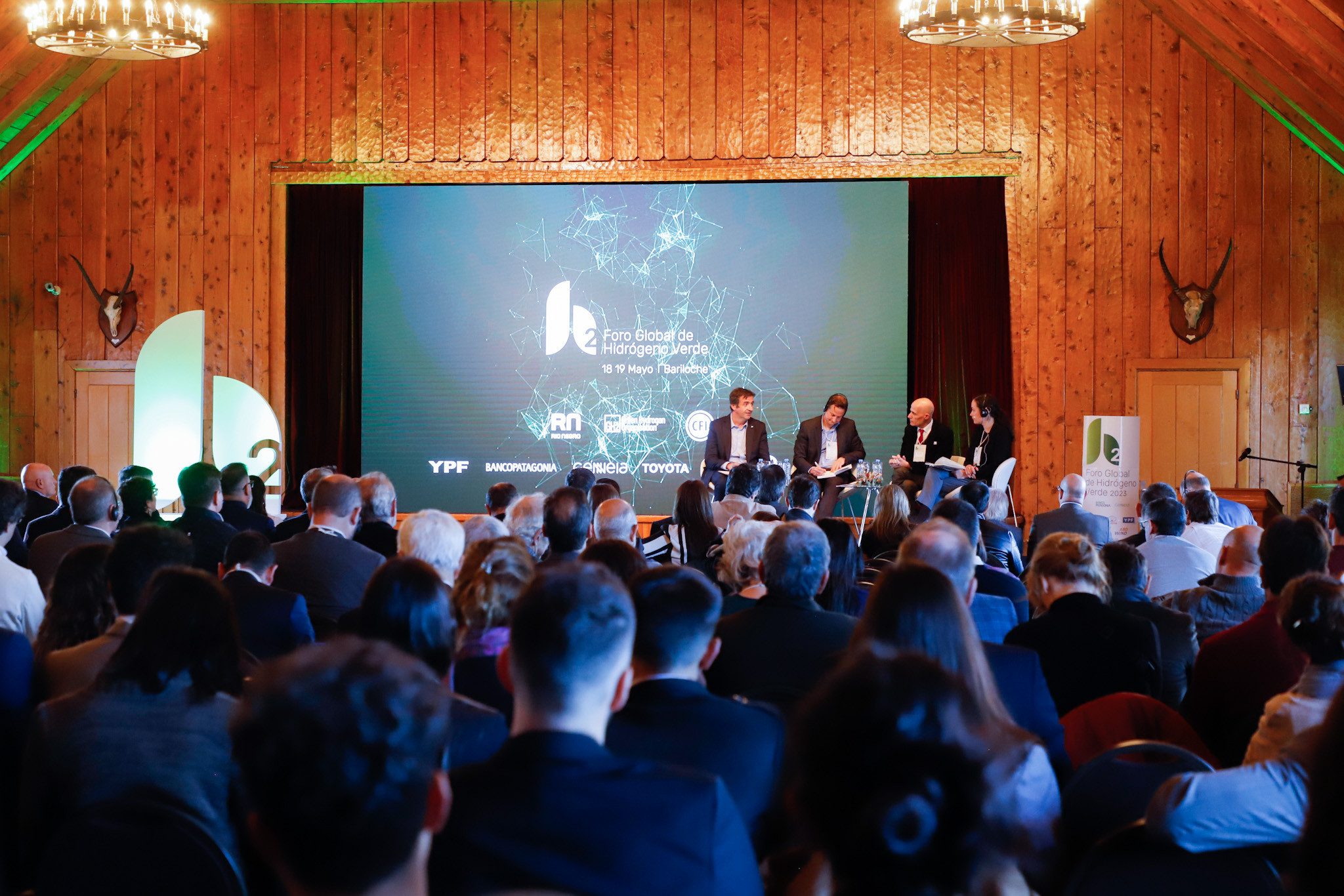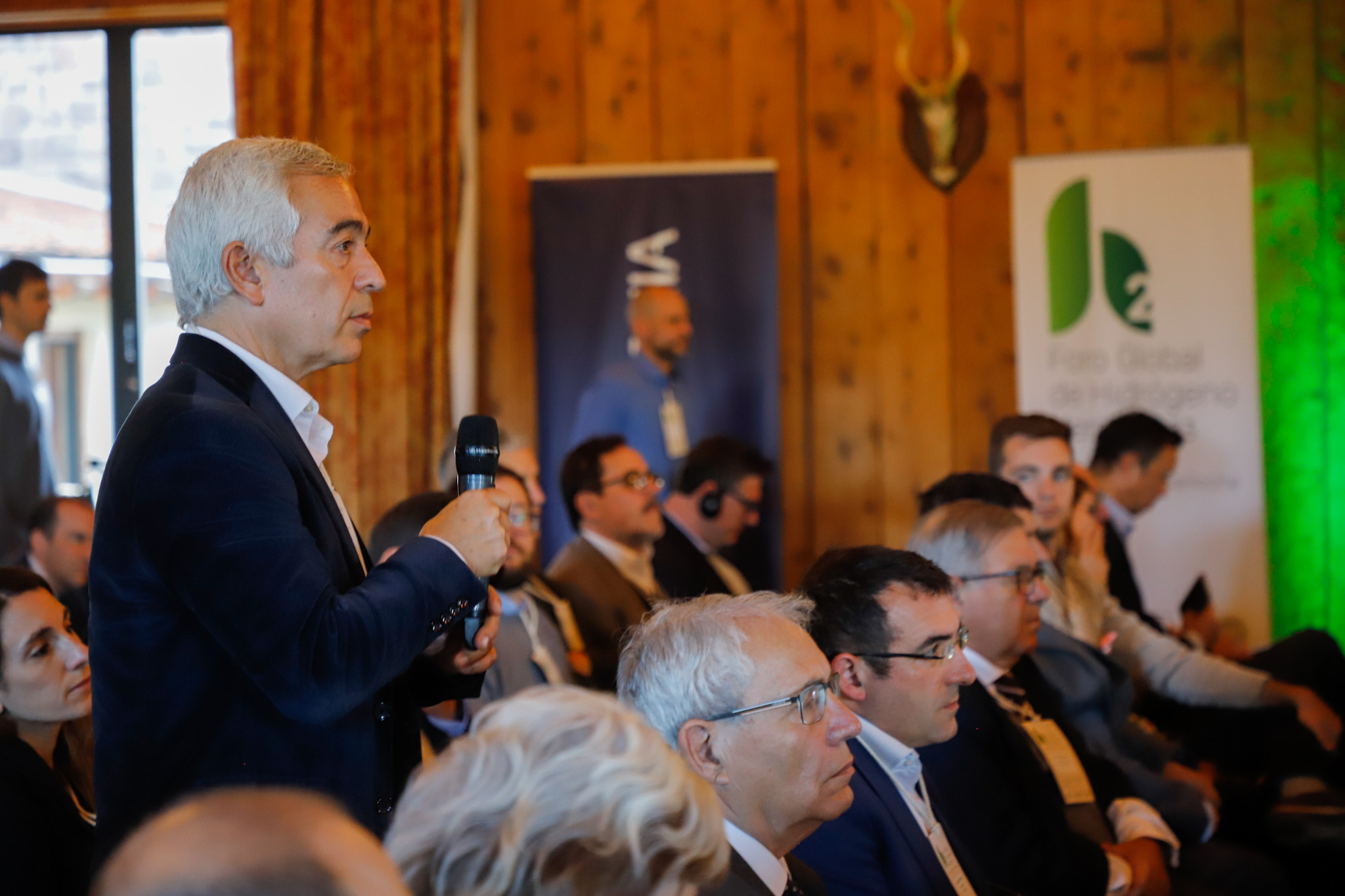Green Hydrogen
Green hydrogen standards, a challenge for Latin America
Three experts discussed and presented "Green Hydrogen Standards: suitable for its purpose and focus on Latin America" in an interesting panel coordinated by the director of The Green Hydrogen Development Plan, GH2, Inés Marques.
Fecha: 19 de mayo de 2023
The President of the Hydrogen Standards Committee, IRAM, José Luis Aprea, talked about the development of hydrogen standards around the world and explained that the objective of the creation of the Technical Committee, in 1990, is to standardize all aspects of production, generation, transport and storage of hydrogen.
The Committee, in which 47 countries participate, including Argentina since 1996, works on the development of these standards, while the experts focus on hydrogen technologies. There is also a subcommittee on technologies whose mission is to improve the methodology for calculating greenhouse gas emissions in any of their uses and forms.

"In Argentina, in a conceptual way, the certification processes aim at a series of limits for the water capture and preparation system, and the specification of which is the renewable energy source used", he pointed out.
Then, they focus on the electrolysis processes for the production itself, purification processes and a general limit in which three additional important aspects for certification become relevant: the human resources for the design and maintenance of the system; the social and environmental impact that these technologies produce.
"It is essential to analyze the social, technical, economic and cultural aspects of the hydrogen industry," he said.
It is essential to consider some aspects first: safety, cost reduction, certification of the origin degree and the necessary schemes. "These aspects must be developed in a global and comprehensive way to eliminate barriers to international trade and facilitate exchange," he said.
"A good business must have benefits for all, because the planet is one, therefore, greater integration at regional and international level is essential, in order to achieve the best for all," he concluded.
Joe Williams, director of Strategy, Green Hydrogen Organization, gave a technical explanation of the modular application of the green hydrogen standard and modularity of the system boundary.
In addition, he referred to the constituent elements of the process initiated from the production of renewable energy plus water, the production and conditioning of green hydrogen, conversion, transport and storage, and reconversion.
He also explained the different ways to produce renewable green hydrogen, making a distinction between direct connection channels and grid connection and their different variants; and referred to the conditions to produce green hydrogen based on the principles, requirements and exceptions and waivers, among other factors such as time and geographical coincidence.
Finally, he encouraged global cooperation to lower emissions as soon as possible, and welcomed the announcements regarding legislation in Argentina and possible tax incentives, "it is exciting and we will be watching to see how this process continues," he said.

Enrique García, Fortescue Future Industries, and Finance & Operations - Latin America, explained: "our company is here because we are fighting global warming and that is the goal; but it is a huge task to keep up with this and that the project complies with the different standards."
"The industry develops and the standards change; the rules are clear, but they have a strong impact on the projects, and Argentina is going to have to do a great job in its relationship with Europe", he said and assured that "each project has a target market and we have to comply with the standards of those markets."
As regards the company's current situation, he explained that the company is carrying out a study with a certifying company and they are comparing standards. "Every time a new program comes out we have to see if we are aligned, the projects have an impact on their competitiveness; and all these regulations are placing the projects in a certain ranking according to these measures," he said.
He also referred to "the very new news that we are going to have a regulatory framework," he assured that "it is important for projects in Argentina to be competitive when it comes to financing and calculating costs."
"We have to consider the rules that the financial project demands and lower costs as much as possible. From each country, we have to see how to make our projects profitable and competitive. In order to ensure that they have a chance in the market, uncertainty must be reduced, so that we can closely follow all the certification models to see where we stand and the areas where we have to focus our efforts," he concluded.


